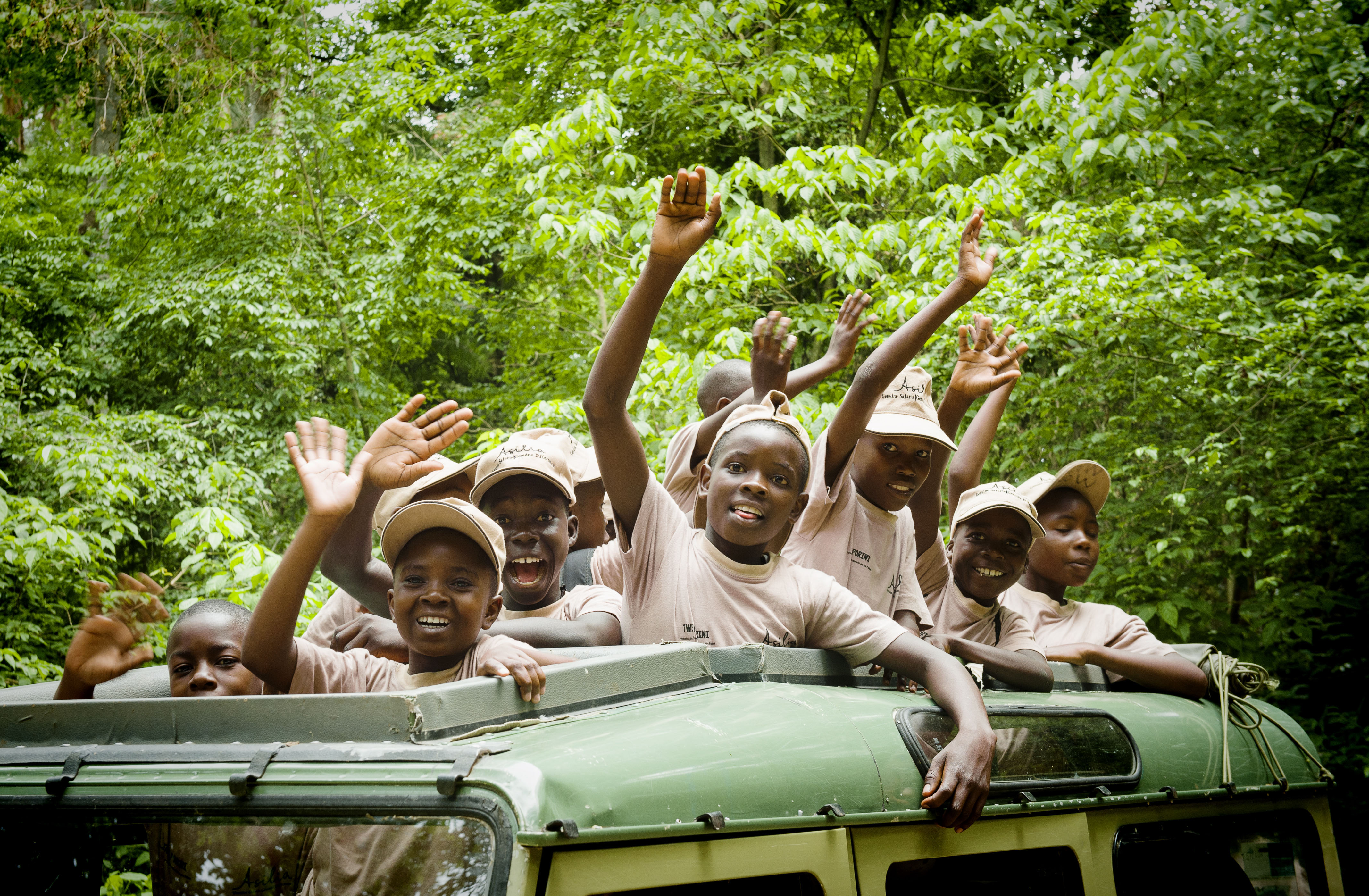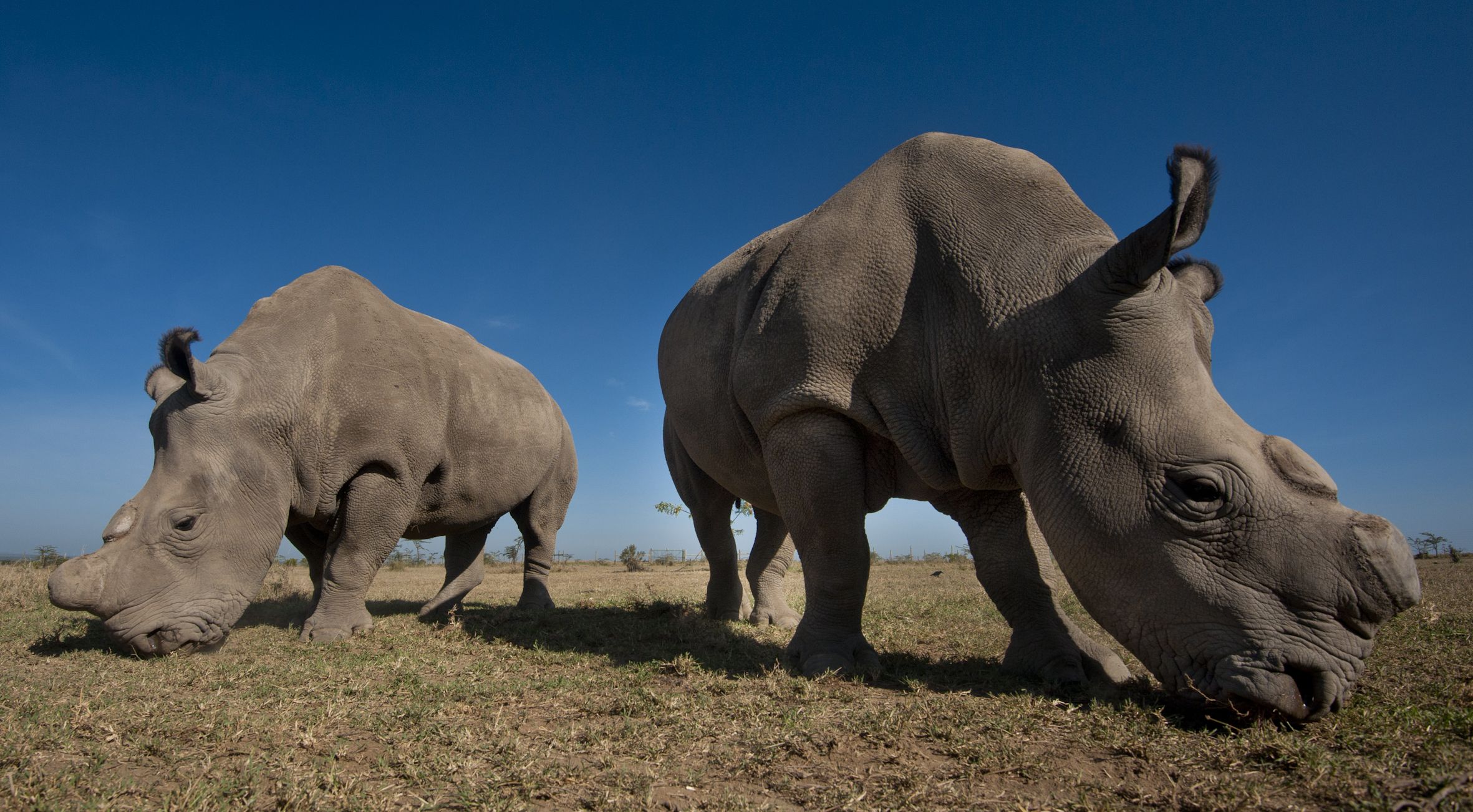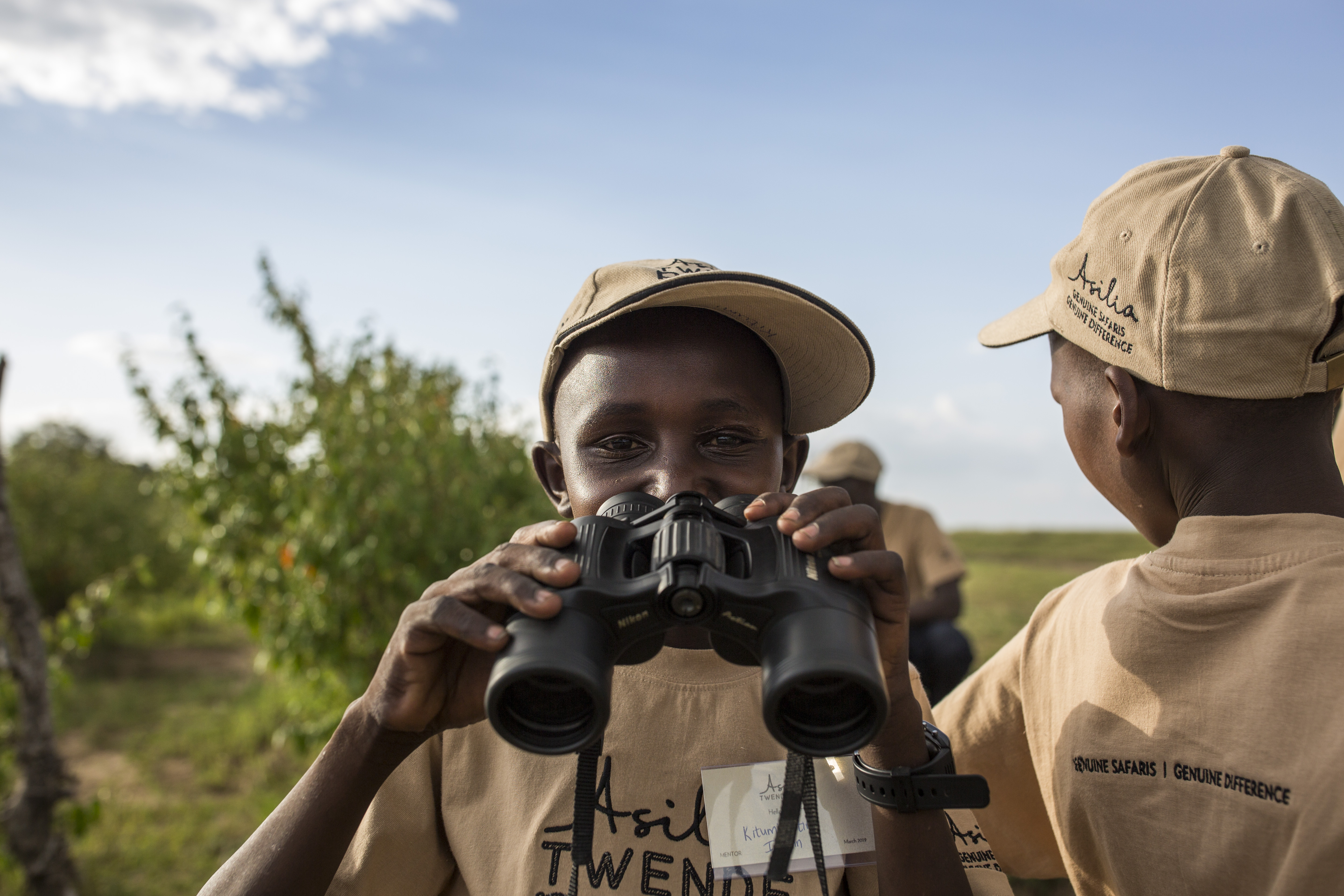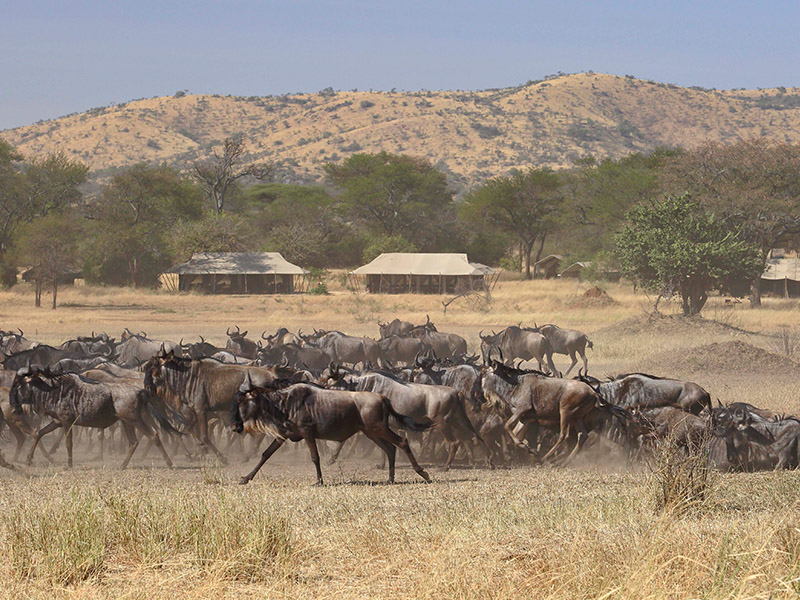Eco Travel: Become An Eco-Adventurer With Asilia
What is Eco-Travel?
According to the International Ecotourism Society, eco-friendly travel is defined as “responsible travel to natural areas that conserve the environment, sustain the well-being of the local people, and involve interpretation and education” (TIES, 2015).In essence, eco-tourismfollows three main principles which are; conservation, communities, and education.

How We Maintain a Responsible Operation
Our biggest commitment is to empower crucial wilderness areas in East Africa, benefitting people and nature.With the help our guests – who contribute a donation of US$5 for each night that they stay with us, we’re able to make the most significant positive impact towards our goal of empowering our areas of operation, including the local communities and wildlife that call them home.
Conservation
Our camps and logistics answer to the highest standards of ecotourism. It means we reduce our footprint by limiting fossil fuels and using sustainable energy sources such as the sun, recycling water that is used in camps, and reducing our overall wastage. The rest of our carbon footprint is offset by our support of local forestation projects and even the introduction of our very own vegetable gardens which are located in areas such as the remote Rubondo Island as well as in the northern Serengeti.
We have appointed Eco-Warriors in each of our camps in Kenya, Tanzania as well as on the island of Zanzibar. These eco-warriors are responsible for the collection of all waste produced by our camps. They sort this waste into different groups based on how they should be disposed of and every week this waste is sent to Arusha for recycling.
Ol Pejeta Conservancy
Home to Ol Pejeta Bush Camp and the last two surviving northern white rhino, Ol Pejeta Conservancy is famous for pioneering conservation projects and unspoilt wilderness. The Conservancy aims to protect all the vulnerable species, provide a sanctuary, and generate an income through tourism for reinvestment in conservation and communities.

Community and Education
Education is a powerful key to change perceptions. That’s why we aim to educate young and old about the importance of conservation of our wildlife and wilderness areas.
Human-Wildlife Conflict
Human-wildlife conflict occurs when animals pose a direct and recurring threat to the livelihood of the communities through attacking and killing their cattle. This ultimately leads to the persecution of that species in retaliation. Examples of human-wildlifeconflict that communities in East Africa deal with are instances such as elephants clearing farmer’s crops, or carnivores, such as leopards, turning to cattle as an alternative food source. Despite the history of conflict; innovation and education have led to collaboration between conservancies and locals, and positive changes are being made.
Livestock enclosures called bomas, to keep predators away
Twende Porini
Twende Porini, which means, “Let’s go to the bush”, is our flagship environmental children’s programme.Lessons are combined with games and fun activities while teaching the childrenabout the importance of sustainable tourism and conservation, and the benefits that these have for them and their families living within rural communities close to our properties.
Watch our Twende Porini video here

Sustainable Practices
At Asilia, we understand the importance of sustainable tourism. Therefore each of our camps were designed to have the lowest impact on the environment, with few permanent structures. We make use of solar power in all of our camps and reuse and recycle water where possible. All of our practices in camp ensure the least possible impact is being made on our environment and this is carried through in all we do. We have the utmost respect for our natural world and our biggest concern is ensuring we are doing everything we can to sustain and conserve the wild areas we operate in.
Our Migration camps offer you a front row seat to experience the Great Migration but they’re also extremely eco-conscious! They move up to three times a year, this allows for the environment to restore itself back to its original state before any interference. These areas are allowed to replenish themselves and the wildlife of the area are able to benefit from this during the times of the year the camp is not in the area.

How Can You Be a Responsible Guest?
Yes, even as a guest enjoying a safari, you can also be involved and do your bit to make a difference. We have listed 5 things, you can do the be an eco-adventurer:
- Avoid using plastic – skip the bottled water and use your refillable Asilia water bottle you receive once you arrive in camp.
- Remember we make use of solar power – turn off the lights when you leave your room and don’t leave appliances charging for longer than need be.
- Conserve water – small acts can save many litres of water.Take shorter showers instead of a bath and don’t leave the water running while brushing your teeth or washing your face.
- Be careful what you buy as a souvenir – do not buy products made from any endangered species. The trade in ivory has led to one of the biggest threats to wildlife species such as elephants and rhinos, so be sure to check before you buy what your souvenir is made from.
- Learn more about the cultures you are exposed to while on safari – feel free to ask the staff about their cultures and history. You’ll be intrigued and mesmerised with the meaning behind the dances, songs and traditional experiences that are shared with you as a guest.
More Positive Impact Articles

Electric Vehicles: The Future Of East African Safari Travel?
12 January 2020October 2019 saw the arrival of our first electric, solar-powered safari vehi...

Its Our 15th Birthday: Celebrating 15 Years of Making a Genuine Difference
08 November 2019This year, we're celebrating our 15th birthday and commemorating 15 years of...

World Tourism Awards 2019: Asilia Recognised For Our Positive Impact
01 November 2019The World Tourism Awards acknowledge, reward, and celebrate excellence across...

Supersized Traditional Maasai Necklace
21 October 2019In 2009, we became a founding member of the Mara Naboisho Conservancy and sin...





